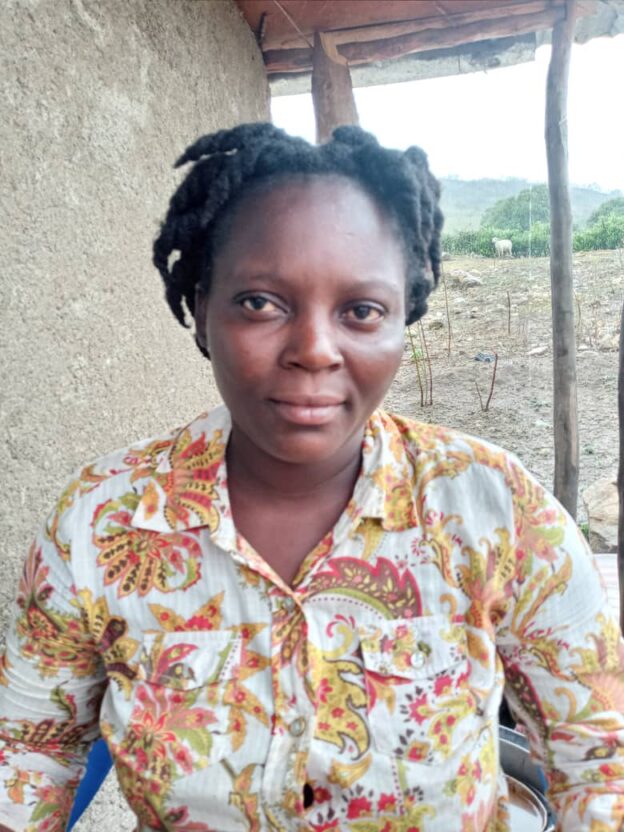Lucienne lives along Ravin Gwomòn, a narrow channel running south and west of the town. It floods to become a river with every heavy rain.
She entered the program with nothing. She would occasionally keep livestock for neighbors, but they always took them back before she could profit by it. She and her four children shared one of the rooms of a two-room house with a neighbor. The children’s father had passed away. The owner of the home just let them stay there. Lucienne would feed the children and herself by buying small quantities of produce on credit from farmers. She’d then break what she purchased into even smaller quantities for sale to consumers in downtown Gwomòn. She struggled to feed her children and to send them to school.
She asked for goats and small commerce. The commerce she chose was the same one she was used to. Haitians call it “kase lote,” which means break down and parcel out. Having joined the program, however, Lucienne could buy her merchandise with cash, which gave her more freedom to choose what to buy and how much. Her goats really prospered. By the time that she was ready to graduate, they had more than doubled in value.
She was happy to join a savings and loan association, and has remained an active member. “It helps you save, and you can borrow the cash you need at the beginning of the school year.”
She speaks clearly about how she thinks CLM helped her. “It put me on the right path. There was training. They taught how life is and how life isn’t. If they hadn’t yelled at me, I wouldn’t own all that I own.”
And she has started to own quite a bit. She began buying additional livestock with proceeds from her small commerce and from the farming she had started to do. She eventually bought six sheep. But she wasn’t especially attached to the animals, viewing them just as an investment. When she saw a chance to buy land already planted with sugarcane, she didn’t hesitate. She sold all the animals she had to in order to accumulate what she needed for the purchase. She sold the cane and bought more land, which she and her new partner have already planted. She plans to use their harvest to start buying livestock again.
She’s happy about the way the new partner is working with her. He contributed to the second land purchase, and he does much of the farm work. But she has no doubt about her own value. When I too-casually mentioned how impressed I was by how much land she and her partner have now accumulated, she was quick to interject that she bought the sugarcane land on her own.
And she is determined to keep moving forward. “I was so poor. CLM helped me pull myself out. I have no right to go back. The humiliation that I used to feel keeps me from slipping.”
She has a larger vision for herself as well. She wants to be able to help others. “If somebody comes to me with a problem, I have to be able to tell them that half of their problem is mine.”
